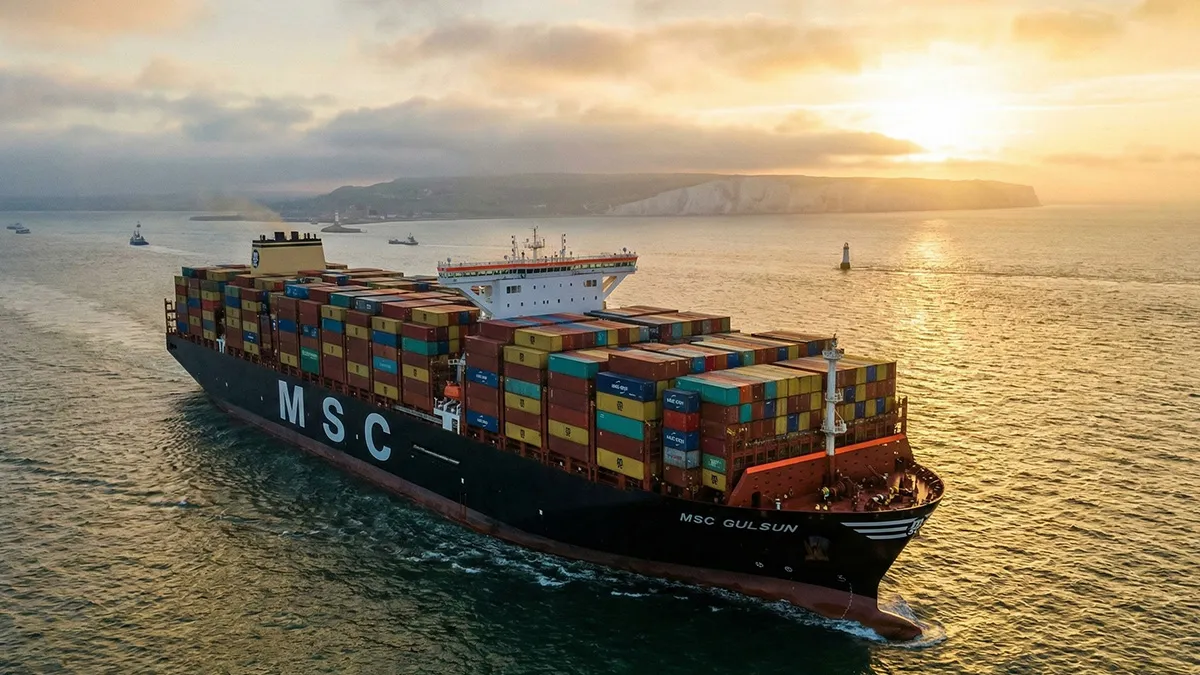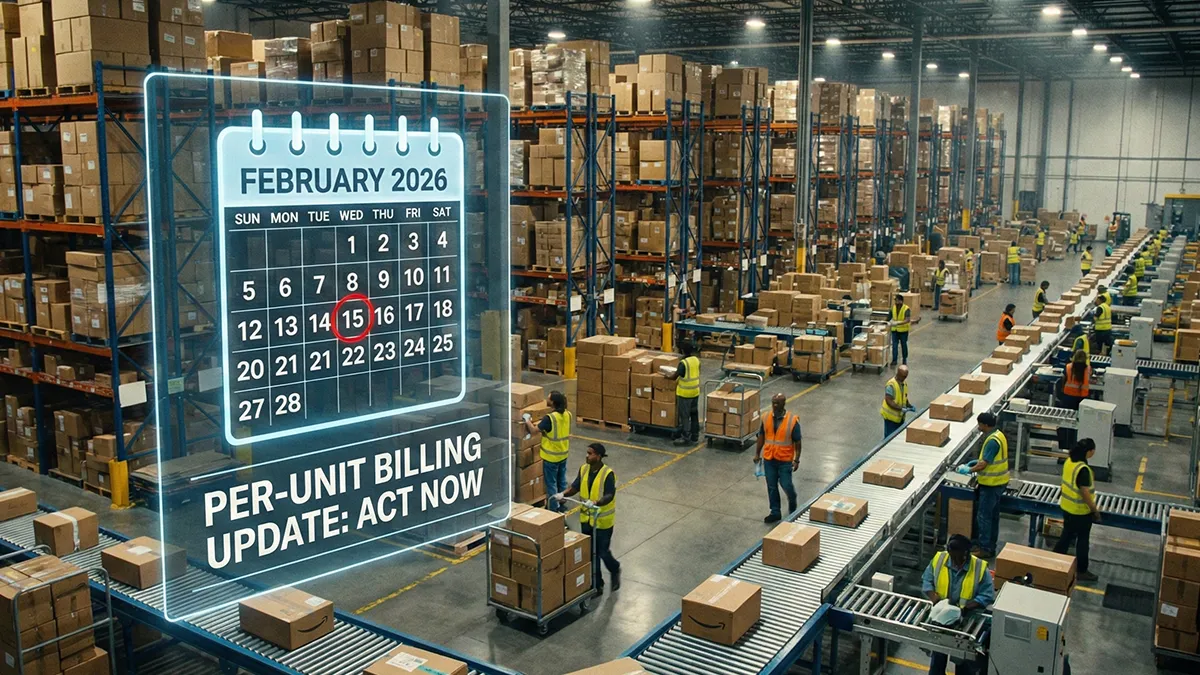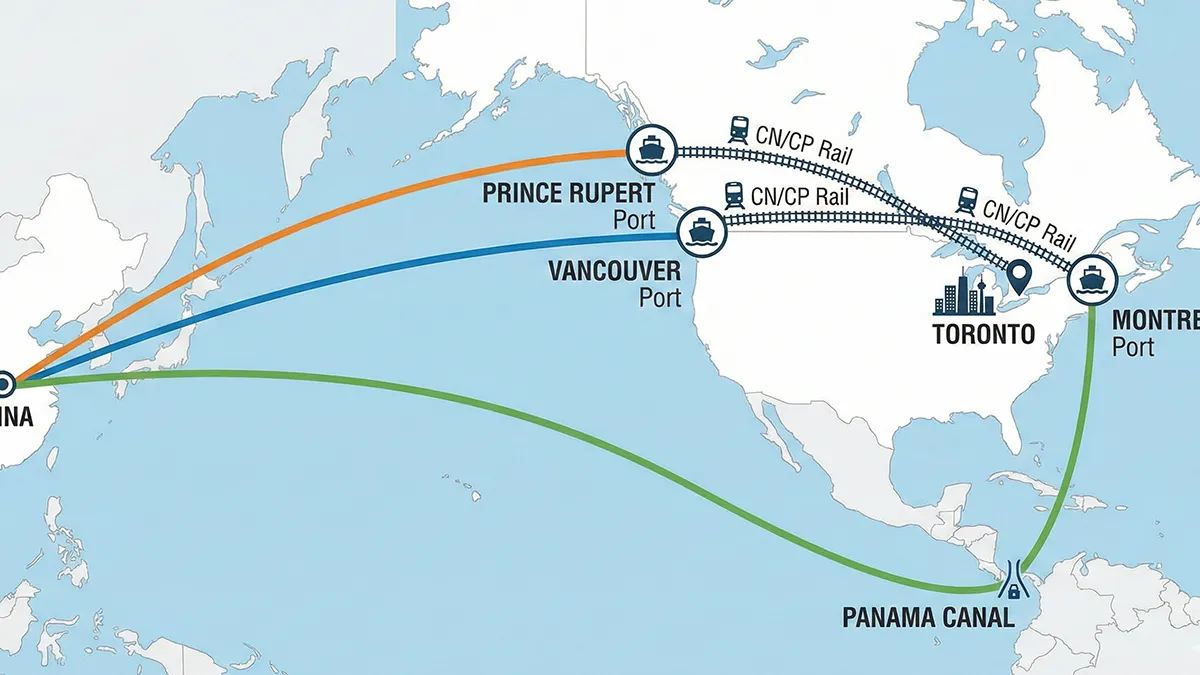NVOCC vs Freight Forwarder: Cost, Risk & Liability Explained
For US importers moving goods from China, there is a consistent, painful pattern we see in the industry:
A business owner receives a "cheaper" quote from a generic freight forwarder, books the shipment to save $200, and then weeks later, faces a cascade of hidden costs, port delays, and compliance headaches that ultimately cost multiples of the original savings.
In the world of international logistics, a quote is not a cost.
At Zbao Logistics, we operate as both a Freight Forwarder and a licensed NVOCC (Non-Vessel Operating Common Carrier), registered with the U.S. Federal Maritime Commission (FMC). We know the difference isn't just acronyms—it’s about legal power and financial liability.
This guide explains why, for China-to-US trade, relying on a licensed NVOCC is the only way to secure your supply chain.
What is an NVOCC?
Most people define an NVOCC as a "carrier that doesn't own ships." While true, that’s a textbook definition.
Here is the business definition:
-
A Standard Freight Forwarder acts as a "Travel Agent." They book your ticket. If the flight is cancelled or your luggage is lost, they point fingers at the airline. They have limited liability.
-
An NVOCC acts as a "Charter Operator." We don't build the plane, but we control the inventory, we issue the ticket in our own name, and—crucially—we are legally responsible for getting you to the destination.
The Key Distinction:
A standard forwarder acts as an agent for the shipper. An NVOCC acts as a carrier to the shipper. This subtle legal shift changes everything regarding rates, liability, and safety.
Pain Point #1: The Hidden Fee Shock
User Anxiety: "Why is my final invoice $800 higher than the quoted ocean freight rate?"
The Reality:
Low-tier forwarders often quote an artificially low ocean freight rate to win your business. They plan to recover their margin through "discovered" fees that pile on once the cargo is on the water.
Common "Hidden Fees" from Unlicensed Agents:
-
Destination Handling Charges (DHC): $300–$800 per container (often undisclosed).
-
Port Congestion Surcharges: Arbitrary fees added retroactively.
-
Documentation Amendment Fees: $150+ for minor typos.
The NVOCC Advantage:
Under Federal Maritime Commission (FMC) regulations, all licensed NVOCCs must publish a detailed Tariff. This means every potential charge is legally documented before you book.
At Zbao Logistics, our NVOCC status mandates transparency. The price we quote is the price you pay. No surprises.
Pain Point #2: Rolled Cargo Nightmares (Peak Season)
User Anxiety: "My cargo was supposed to arrive for Black Friday, but it got 'rolled' and sat in Ningbo for two weeks."
The Reality:
When capacity is tight (Peak Season), ocean carriers (like Maersk or COSCO) prioritize cargo based on contract status.
-
Spot Market Cargo (Standard Forwarders): Lowest priority. First to be kicked off the ship ("rolled") when overbooked.
-
NAC Cargo (NVOCCs): High priority.
The NVOCC Advantage (Tier-1 Contracts):
Licensed NVOCCs negotiate Named Account Contracts (NAC) or Tier-1 Service Contracts directly with steamship lines. These contracts guarantee a specific allocation of space (e.g., 500 containers/month) regardless of market fluctuations.
Our Experience:
In the past 12 months, during the pre-Lunar New Year rush, our NVOCC contract cargo maintained a 98% loading rate, while we saw spot-market bookings from other forwarders facing delays of 14–21 days.
Pain Point #3: The Compliance Trap (ISF Penalties)
User Anxiety: "CBP held my cargo and issued a $5,000 penalty. My forwarder said it's not their fault."
The Reality:
The Importer Security Filing (ISF) must be filed 24 hours before the vessel departs China. Low-tier forwarders often handle this manually or outsource it to third parties, leading to missed deadlines.
The Cost: CBP issues liquidated damages of $5,000 per violation.
The NVOCC Advantage:
As a professional NVOCC, we utilize automated EDI systems directly linked to US Customs. We don't just "try" to file; our system validates the data against the House Bill of Lading to ensure a perfect match, eliminating the risk of [See: Customs Clearance] holds due to clerical errors.
Pain Point #4: Liability & The "Legal Shield"
This is the most critical structural risk for importers.
If you use a standard forwarder, you are typically shipping under the carrier's Master Bill of Lading. If your cargo is lost at sea, the carrier will invoke the COGSA (Carriage of Goods by Sea Act) limitation, often capping their liability at just $500 per package (or container).
The NVOCC Advantage (HBL):
An NVOCC issues its own House Bill of Lading (HBL).
-
Direct Liability: We are legally the carrier. You claim against us, not a foreign steamship line.
-
FMC Bond: All NVOCCs must maintain a $75,000 Surety Bond (for foreign NVOCCs, often higher). This bond serves as a financial safety net for shippers if the NVOCC fails to perform. Unlicensed forwarders have no such requirement.
Comparison: Broker/Agent vs. NVOCC
| Feature | Standard Freight Forwarder (Agent) | Licensed NVOCC (Zbao Logistics) |
| Legal Role | Intermediary / Agent | Virtual Carrier |
| Bill of Lading | No HBL Issued | Issues House Bill of Lading (HBL) |
| Rate Stability | Volatile Spot Market Rates | Contract Rates (NAC) |
| Space Guarantee | Low (First to be rolled) | High (Contract Allocation) |
| Hidden Fees | Common (DHC, Release Fees) | Transparency (FMC Tariff) |
| Liability | Limited Agency Liability | Carrier Liability + FMC Bond |
Pro Tip: If your shipment value is low (<$1,000) and delivery timing is flexible, an NVOCC may be unnecessary overhead. But for commercial importers building a brand, the NVOCC protection is essential.
Decision Guide: Do You Need an NVOCC?
Not every shipment requires an NVOCC. Here is how to decide:
Use a Freight Broker/Agent If:
-
You are shipping domestic freight within the US (Trucking).
-
You are moving small parcels (Courier/Express).
Choose a Licensed NVOCC (Zbao Logistics) If:
-
You are importing commercially from China to the USA.
-
You need a [See: Amazon FBA Freight Forwarder] capable of door-to-door delivery.
-
You want one party to take legal responsibility for the cargo from the factory to your door.
-
You cannot afford to have your cargo rolled during peak season.
FAQ: Common Questions from Importers
1. Why is the NVOCC quote sometimes higher than a cheap forwarder quote?
That small difference is the cost of certainty. A cheap forwarder quote is often an "estimate" subject to hidden destination fees and spot rate hikes. An NVOCC quote is a commitment based on contract rates. When you factor in the risk of rolled cargo (lost sales) and hidden fees, the NVOCC is almost always cheaper in total landed cost.
2. Can an NVOCC handle Amazon FBA door-to-door delivery?
Yes. While NVOCCs control the ocean leg, top-tier partners like Zbao Logistics integrate trucking and customs to offer a full door-to-door (DDP) service. We book the delivery appointment with Amazon Fulfillment Centers directly.
3. Do I still need Cargo Insurance if I use an NVOCC?
Yes. While an NVOCC offers better liability protection than an agent, we still recommend [See: Cargo Insurance] for total peace of mind. NVOCC liability protects you against negligence, but "All-Risk" insurance covers acts of God and General Average events.
Conclusion
For importers moving goods worth tens or hundreds of thousands of dollars, logistics is not a place for ambiguity.
The choice between a standard forwarder and an NVOCC is a choice between "hoping for the best" and "contractual guarantees." For the complex Trans-Pacific trade lane, the risks of using an unlicensed intermediary—ranging from customs holds to total liability gaps—are simply too high.
Start Your Secure Shipment
Most import losses don’t come from freight rates—they come from rolled cargo, compliance penalties, and liability gaps that were never disclosed upfront. Get a transparent, risk-reviewed shipping plan from a licensed NVOCC today.
[Request a Risk-Reviewed Quote]


